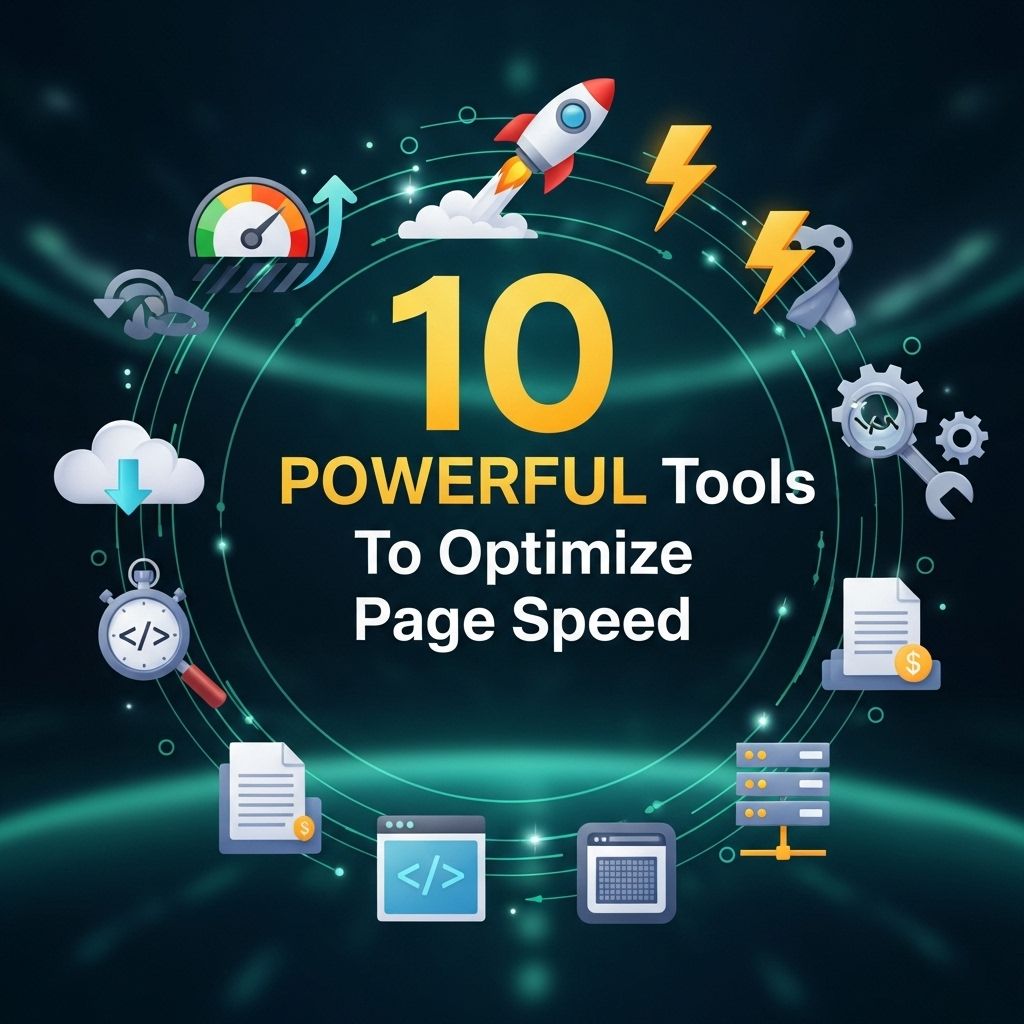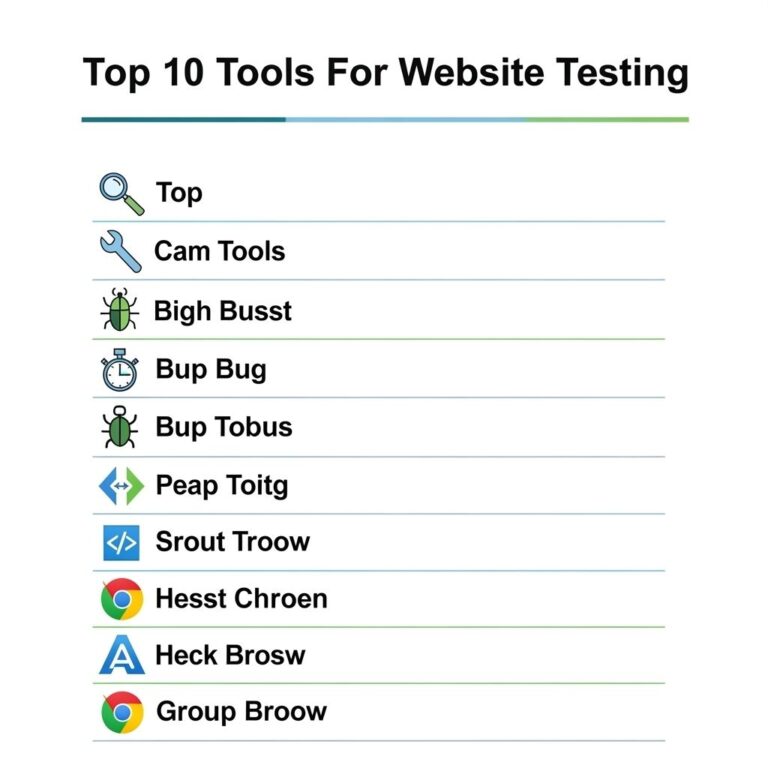In the fast-paced world of digital content, page speed is a critical factor that contributes to user experience, SEO rankings, and overall website performance. Users want instant access to information, and search engines prioritize sites that meet these demands. In this article, we’ll explore ten powerful tools designed to help developers and website owners optimize their page speed effectively.
Table of Contents
Understanding Page Speed
Before diving into optimization tools, it’s essential to understand what page speed is and why it matters. Page speed refers to how fast the content on a webpage loads, measured in seconds. It encompasses various factors, including server response time, resource loading, and rendering speed. Here are some key reasons why optimizing page speed is essential:
- User Experience: A fast-loading site leads to higher user satisfaction.
- SEO Benefits: Search engines like Google use page speed as a ranking factor.
- Higher Conversion Rates: Faster sites see improved sales and lead generation.
Top 10 Tools to Optimize Page Speed
Let’s take a closer look at ten of the most effective tools available to help you improve your website’s page speed.
1. Google PageSpeed Insights
Google PageSpeed Insights is a free tool that analyzes the content of a web page and generates suggestions to make it faster. It provides a score from 0 to 100, with higher scores indicating better performance. Key features include:
- Mobile and desktop performance analysis.
- Detailed reports on performance metrics.
- Recommendations for optimization.
2. GTmetrix
GTmetrix combines Google PageSpeed and YSlow scores to provide a comprehensive analysis of your website’s performance. It offers actionable recommendations, and you can also track performance over time through its monitoring features. Highlights of GTmetrix include:
- Waterfall charts to visualize loading times.
- Historical data tracking.
- Integration with various APIs.
3. WebPageTest
WebPageTest is a powerful tool that allows you to test your website’s performance from multiple locations around the world. Its in-depth analysis provides detailed information on how different elements load on your page. Key benefits include:
- Advanced testing options including mobile simulations.
- Real-time waterfall charts.
- Video capture of page rendering.
4. Pingdom Tools
Pingdom offers a simple interface to analyze your website’s speed and performance. It includes a breakdown of each component’s loading time and provides suggestions for improvement. Notable features include:
- Performance grades for quick assessments.
- Uptime monitoring.
- API access for integration with other tools.
5. Lighthouse
Lighthouse is an open-source tool developed by Google that audits web pages for performance, accessibility, SEO, and more. Developers can run it directly from Chrome DevTools, the command line, or as a Node module. Features of Lighthouse include:
- Performance audits with scoring metrics.
- Accessibility checks.
- Progressive web app assessments.
6. Cloudflare
Cloudflare is not only a content delivery network (CDN) but also offers various optimization features that can enhance page speed. By caching content and optimizing resource delivery, Cloudflare reduces server load and improves loading times. Key features include:
- Global CDN for faster content delivery.
- Image optimization.
- Automatic caching of static resources.
7. TinyPNG
Images are often the heaviest assets on a webpage, and optimizing them can significantly improve loading times. TinyPNG compresses PNG and JPEG images while maintaining quality. This tool is essential for:
- Reducing image file sizes without sacrificing quality.
- Batch processing images.
- Integrating with various platforms for seamless optimization.
8. Sucuri
Sucuri is primarily known for website security, but it also offers performance optimization features. Its firewall can help reduce server load, and its CDN accelerates content delivery. Benefits include:
- Malware scanning and removal.
- Cached content delivery.
- Performance monitoring tools.
9. WP Rocket
For WordPress users, WP Rocket is a premium caching plugin that effectively optimizes page speed. It automates many optimization tasks, making it beginner-friendly. Key features include:
- Page caching and cache preloading.
- File optimization options (CSS, JavaScript).
- Lazy loading for images.
10. YSlow
Developed by Yahoo, YSlow analyzes web pages and suggests ways to improve their performance based on a set of rules for high-performance web pages. Notable aspects include:
- Performance reports with grades.
- Integration with other developer tools.
- Customizable rulesets for specific needs.
Implementing Optimization Strategies
Using these tools effectively requires a strategic approach. Here are some tactics to implement when optimizing your site:
- Regularly test your website’s speed using multiple tools.
- Prioritize high-impact optimizations such as image compression and caching.
- Monitor performance continuously for any changes or regressions.
Conclusion
Page speed is a vital component of web performance that impacts user experience, SEO, and overall site effectiveness. By leveraging the tools mentioned above, website owners can identify areas for improvement and implement strategies that lead to faster loading times. In a digital landscape where every second counts, investing in page speed optimization is essential for success.
FAQ
What are the best tools to optimize page speed?
Some of the best tools to optimize page speed include Google PageSpeed Insights, GTmetrix, Pingdom, WebPageTest, and Lighthouse.
How does Google PageSpeed Insights work?
Google PageSpeed Insights analyzes the content of a web page and provides suggestions to improve its speed based on various performance metrics.
What is GTmetrix used for?
GTmetrix is a performance analysis tool that provides insights into page speed and offers recommendations to enhance website performance.
Why is optimizing page speed important for SEO?
Optimizing page speed is crucial for SEO because faster loading times improve user experience, reduce bounce rates, and can lead to higher search engine rankings.
How can I improve my website’s loading time?
To improve website loading time, consider optimizing images, leveraging browser caching, minimizing CSS and JavaScript, and using a content delivery network (CDN).
What is a Content Delivery Network (CDN) and how does it help with speed?
A CDN is a network of servers distributed across various locations that helps deliver content more quickly to users by storing copies of your website on multiple servers.









